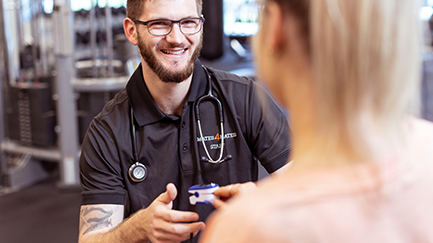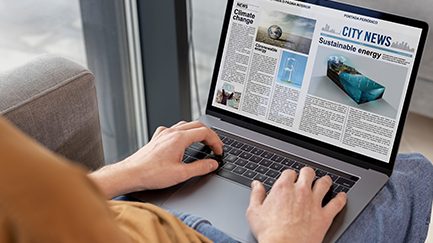It’s getting warmer which means your bodies will be working harder to regulate while you’re exercising. Exercise increases your bodies temperature and there are a few ways your body thermoregulates.
You will start sweating, your blood vessels will dilate (you may go red!), your breathing will increase, and you won’t want to sit still! Remember the bodies normal core temperature range is between 36.1’C to 37.2’C (Koop & Tadi 2019). Various conditions and medications can effect our normal thermoregulation, for example those suffering major depressive disorders have reduced capacity to sweat and regulate core body temperature (Janssen et al. 2016). Learning a few ways to stay cool may prove useful when you’re engaging in those healthy exercise habits!
Here are the principles that your body is using to keep you cool:
- Evaporation – Sweating! As your body produces heat as a by-product of creating energy to move your sweat glands will release water and salt through sweat. As the water dries it will carry heat away with it. This is one of the most effective ways to stay cool. How to Maximise sweat efficiency: More body surface area/skin exposure (no hat, no long socks, singlets, shorts). Big deep breaths between sets will also help dissipate some heat.
- Radiation – Heat moving between objects. If your environment is high in radiant heat, then you will absorb heat (like being in the sun).How to maximise radiant heat loss efficiency: Stay in a cool environment, out of the sun and in areas which surfaces are cooler than yourself (aircon gym space for example). Like evaporation, having your hotter areas (like head, arms pits, back) exposed to cooler areas may dissipate heat through radiation.
- Conduction – Surface to surface. If the surface your interacting with is cooler, then it will result in a net loss of heat (think ice bag on the neck). If it’s hotter then it will result in heat gain! How to maximise convection efficiency: Keep your equipment in the shade or a cool environment. Wear clothes that are light and can dry/cool easily (even change shirts, shorts or socks if needed).
- Convection – The process of losing heat through movement of air or water. Heat will move from hot areas to cool areas as much as needed to try and achieve a temperature balance. How to maximise your convection efficiency: Use air flow (fans, aircon, breeze) across the body to ‘steal’ the heat away from you.
These are a few ways to stay cool but don’t go too extreme! Remember your body is a very efficient machine and these cooling methods are already in place.
In summary, wear light, minimal (as appropriate!) and cool clothing. Play in the shade with air flow or light breeze. Keep your equipment in cooler areas where possible. Don’t go too hard to early, get used to your environment. Drink water and breathe deeply between your working sets.
Written by Exercise Physiologist Nolan Woo
References:
Baker, L. B. (2019). Physiology of sweat gland function: The roles of sweating and sweat composition in human health. Temperature, 6(3), 211-259.
Janssen, C. W., Lowry, C. A., Mehl, M. R., Allen, J. J., Kelly, K. L., Gartner, D. E., ... & Fridman, A. (2016). Whole-body hyperthermia for the treatment of major depressive disorder: a randomized clinical trial. JAMA psychiatry, 73(8), 789-795.
Koop, L. K., & Tadi, P. (2019). Physiology, Heat Loss (Convection, Evaporation, Radiation). In StatPearls [Internet]. StatPearls Publishing.
Lowry, C., Flux, M., & Raison, C. (2018). Whole-body heating: An emerging therapeutic approach to treatment of major depressive disorder. Focus, 16(3), 259-265.





